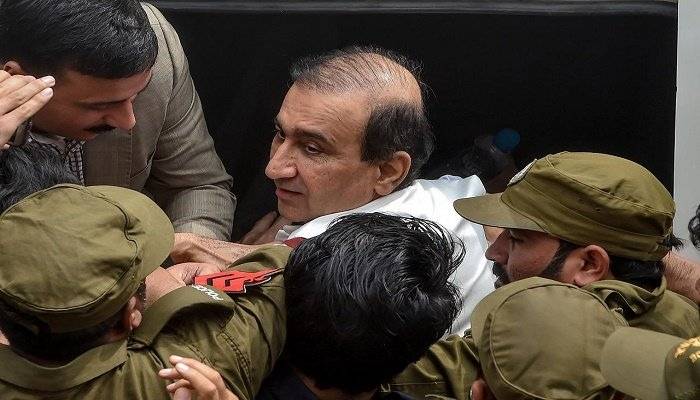
WORLD PRESS FREEDOM DAY
Special Report
The days of military dictator Gen. Ziaul Haq may be long gone, when journalists in Pakistan were even flogged, including Nasir Zaidi, current secretary general of the Pakistan Federal Union of Journalists. But threats continue to come at the free news media from all sides.
Journalists in Pakistan are still threatened, arrested and target killed. As many as 33 journalists were killed in just six years, 2013-2019. Many were forced out of the country for fear of their lives. Some, like Sajid Hussain, chief editor of the Baluchistan Times, died anyway. He had taken asylum in Sweden in 2012 but went missing a couple of months ago. On May 1, he was found dead.
But targeting individual journalists is messy and less effective than targeting media owners and through them, the media platforms they control. This is “much more efficient and manageable”, comments Supreme Court advocate Babar Sattar.
This tactic is exemplified by the now nearly-two-month long incarceration of Mir Shakilur Rahman, who heads the country’s largest and arguably most influential media group, Jang/Geo.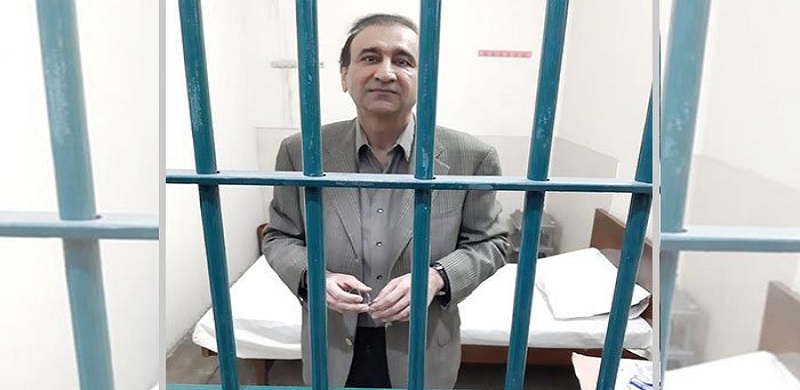
“The use of criminal law is another tool of deterrence and control’, says Sattar, terming Rahman’s continued detention “a case of egregious abuse of a penal law to deter independent minded media. With MSR's arrest and detention a clear message has been sent that the establishment's approach to exhibition of independence will be no-holds-barred. Nothing is off the table”.
An earlier prominent case involved The Frontier Post owner/editor-in-chief Rehmat Shah Afridi, picked up in 1999 and convicted on charges of drug smuggling that many believed were fabricated. He was released on parole in 2008, a shadow of his former self after nine years in prison, several of them on death row.
In today’s digitally connected world, literally every international human rights and media watchdog has taken notice of Rahman’s detention. More appeals for Rahman’s release have come in than for Z.A. Bhutto’s, contends senior journalist Afaq Farooqui, the New York-based editor of the now defunct Pakistan Post.
https://www.youtube.com/watch?v=EMSdbYIQ5vE&feature=youtu.be
Many rights groups have written to the government of Pakistan, and even directly to Prime Minister Imran Khan himself, “all but holding him personally responsible and asking adherence to the treaties to which Pakistan is signatory”, says a source.
Rahman’s case even makes it to this month’s 10 'Most Urgent' Cases of Threats to Press Freedom, a list maintained monthly by the One Free Press Coalition, a collective of nearly 40 news organisations.
The Jang/Geo media group has been “inundated with calls” from foreign missions expressing concern and asking how they can help. “But we don’t want to badmouth our own government and give details of how the law is being flouted and the Geo/Jang Group being targeted”, says an insider. “In these difficult times when Pakistan faces FATF sanctions, not to mention the coronavirus pandemic, we do not need this”.
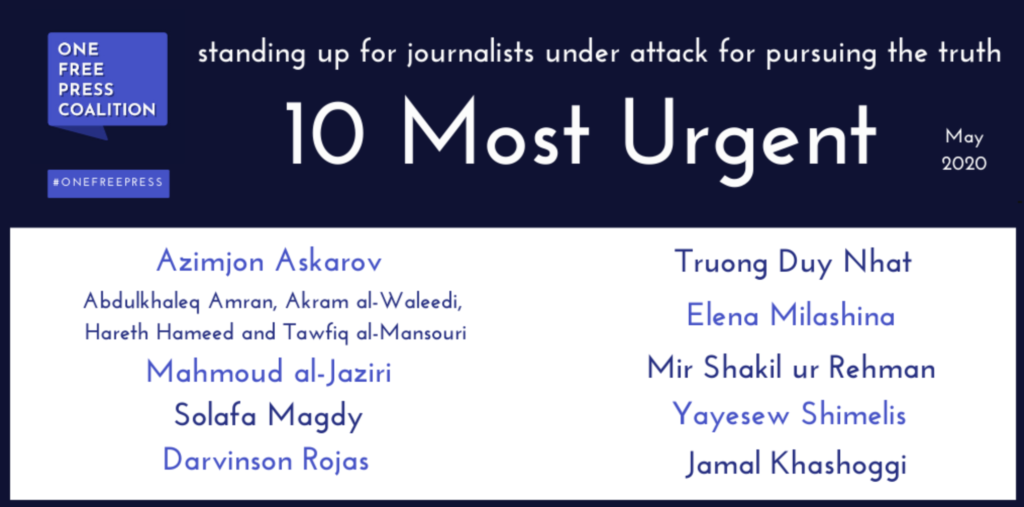
***
A case study of the persecution of Rahman and his Jang/Geo media group provides interesting insights into how independent media in Pakistan are being squeezed.
Rahman, imprisoned for over 50 days, is accused of illegal dealings in a decades-old private property case, a commercial transaction between private individuals. Since the state is not involved and no legitimately aggrieved party has lodged a complaint, the question arises about why NAB has involved itself.
“The complainant has no legal locus standi in the matter. He is neither aggrieved not in any way involved. Even more suspicious is the fact that he is an employee of Bol, a rival channel and one accused of committing international crimes, which Geo and Jang Group helped expose”, says a Geo spokesperson.
Secondly, why is the accountability office not following its own due procedures? Just days before Rahman’s arrest the Islamabad High Court had severely reprimanded NAB on its inclination to arrest people without evidence, based on ‘roving enquiries’. The court said that such arrests were a misuse of the NAB chairman’s authority and would not be allowed.
The arrest wasn’t entirely unexpected. Imran Khan while still in opposition had pledged to file cases against Rahman in NAB if he ever came to power.
“In his 2014 dharna IK named MSR 357 times, compared to the ostensible object of his wrath, Nawaz Sharif, who he named 171 times from atop his container near the Geo office in Islamabad”, says a Geo insider.
Charged participants dispersing from the dharna attacked the Geo office on 24 occasions. Over 40 Geo journalists covering PTI rallies were also attacked, not just in Pakistan but also abroad as Geo’s UK correspondent Murtaza Ali Shah testified before a London court in 2016. He was one of the witnesses in Mir Shakilur Rahman’s libel case against channel ARY that had launched a propaganda campaign against Rahman and his media group.
Rahman’s move to take the case to a court in England where both broadcasters also run operations was strategically calculated to circumvent “Pakistan’s dysfunctional legal system” as the Guardian termed it in a report at the time.
“The lack of judges, strikes by lawyers and delaying tactics mean a civil case can take 20 years to get resolved in Pakistan,” advocate Salman Raja told the Guardian. “Even if you took it all the way to the supreme court you might get damages of less than 15m Pakistani rupees [£115,000].”
The London court found ARY guilty of making 24 separate defamatory claims against Rahman and ordered the channel to pay damages of £185,000. ARY’s total bill including costs was estimated at nearly £3m but the channel filed bankruptcy.
**
Since assuming power in 2017, Prime Minister Imran Khan has been publicly antagonistic towards the Jang/Geo media group, openly threatening to take action against the channel and brushing aside any attempts to ask his followers to not be aggressive towards it. NAB has also repeatedly threatened the media group.
Even so, the arrest was carried out “in undue and unholy haste” in violation of NAB’s own rules under which arrest cannot be made at this juncture, notes Muhammad Amjad Pervaiz, Advocate Supreme Court.
Rahman had flown to Lahore on 12 March 2020 to present himself to the National Accountability Bureau with evidence about case, hinging around private property acquired in 1986. NAB procedure requires informing the accused of the charges, summoning them to verify the complaint, and providing them a questionnaire. The answers are reviewed; only they are found unsatisfactory does the NAB board approve arrest, after which the NAB chairman signs the warrants of arrest.
Not only was this procedure bypassed, Rahman’s responses were not reviewed, and he was served pre-prepared warrants of arrest soon after being questioned verbally. Given the chronology of events that day, “there is thus no question, therefore, of the Chairman (NAB) having seen any of the materials before he signed the Warrant of Arrest”, argues the writ petition before the Lahore High Court filed by Aitzaz Ahsan seeking Rahman’s release (No. 17809 of 2020, Mir Shakil ur Rahman Vs. The Chairman, NAB, Etc).
The petition notes that NAB told the court that Rahman’s responses were sent to the NAB Chairman for review via fax. When asked to produce the fax, they said the consultation was conducted via video link. They were also unable to produce the recording of any such video consultation.
Not only was Rahman arrested in an irregular manner, but his personal cell phones were also “illegally confiscated - again surreptitiously. He wasn’t carrying the phones on him. The authorities asked his driver to bring the car into the compound of the NAB building, as if to collect MSR. Once inside, the car was searched and phones taken”, says a Geo insider.
Even arrests made after completing the procedure take place only if the accused is a flight risk, will not cooperate, or is in a position to interfere with investigations. Not only was Rahman fully cooperating, having flown in from Dubai when summoned, but “it is inconceivable that he could in any way influence a case that was 34 years old, where NAB itself was finding it difficult to locate the sellers as well as the then LDA director”, says a Geo spokesperson.
Rahman had purchased the property from the legal owners, seven brothers and sisters, in May 1986, obtaining power of attorney and paying the required taxes and levies. It is this land, parcelled into three non-contiguous plots in Johar Town, under the jurisdiction of the Lahore Development Authority (LDA) that Rahman is accused of illegally acquiring.
His detention on these charges (which have yet to be framed) is the tip of the iceberg in terms of the pressures on his media group.
In the year-and-a-half leading up to his arrest, NAB had sent its reporters, producers and editors, “directly and indirectly, over a dozen notices, threatening shutdown of our channels”, according to a Jang Group spokesperson
**
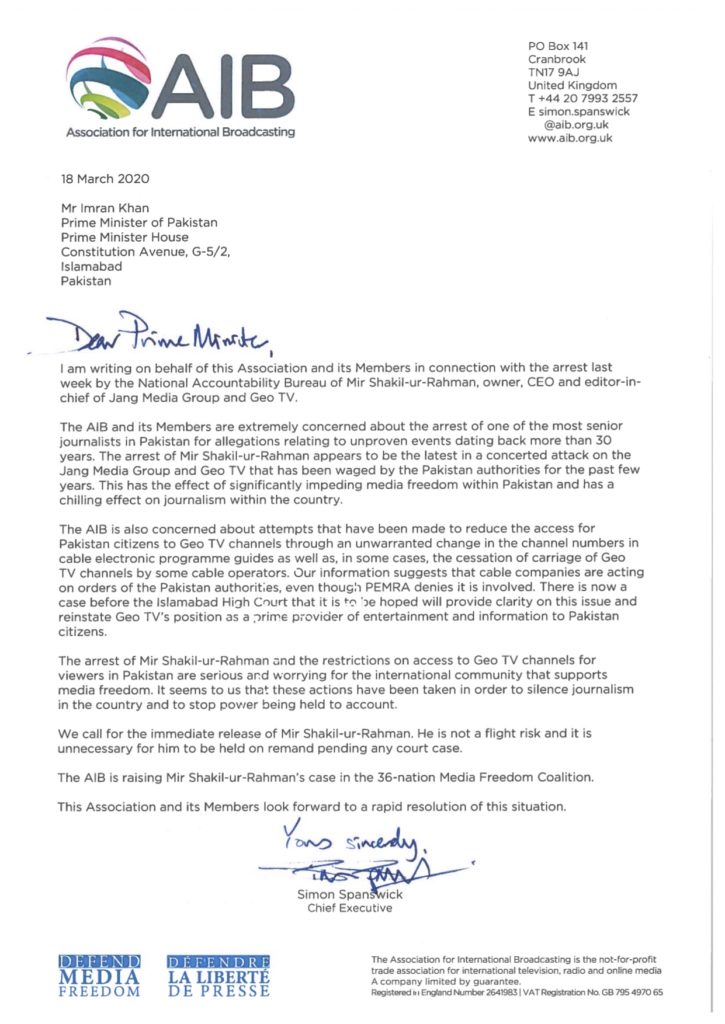
Besides legal pressures, media in Pakistan face a financial squeeze. The pressure on the Jang/Geo group apparently aimed at forcing the media house to collapse altogether includes denying government-controlled public sector advertisements and withholding past due payments.
“The establishment employed all means to engineer the media's cash flows, by using its control over distribution channels (through cable companies) to curtail distribution and consequently advertising revenues. We saw Jang/Geo circulation dip in 2018 and it came to the verge of bankruptcy”, says Babar Sattar.
According to sources, the current PTI-led government owes the group over PKR 700 million for advertising over the past 18 months. Arrears pending from advertisements placed by the previous PPP and PML-N governments amount to a whopping PKR 6 billion.
Government sources claim that some of the ads were “gifts” from the advertisers. However, aware which way the wind is blowing, advertisers are also looking the other way.
Running Geo alone costs PKR 180 million a month. An insider close to Rahman confides that he has taken out a PKR 2 billion loan to pay salaries. Even so, the group has had to close four publications including the Daily News and Awam, laying off around 800 employees. Pages of existing publications have been reduced, including Jang at five stations and The News Karachi, Lahore and Islamabad.
Plans to launch Jang from Peshawar and Multan have been indefinitely postponed, leading to many journalists and printing staff being laid off. The Jang Multan lay off in mid-February affected 70 workers who joined the ranks of other journalists laid off in Multan, including 80 from Dunya, and another 20 from Daily Express.
Since 2014 when the onslaught on Geo began, cable operators have suspended the channel’s transmission or shuffled it around to obscure numbers making it difficult for viewers to find.
The group’s inability to get help from the justice system is another way of controlling it, contends Babar Sattar. “During CJP Saqib Nisar's time we saw him insist on payment of salaries, while refusing to look at why Geo’s broadcast was shut down”.
The last such occasion was immediately after Rahman’s arrest and press conference by Firdous Ashiq Awan, the then special assistant to the prime minister (SAPM) on information accusing him of various wrongdoings. As before, transmission was restored only on the orders of the superior courts.
**
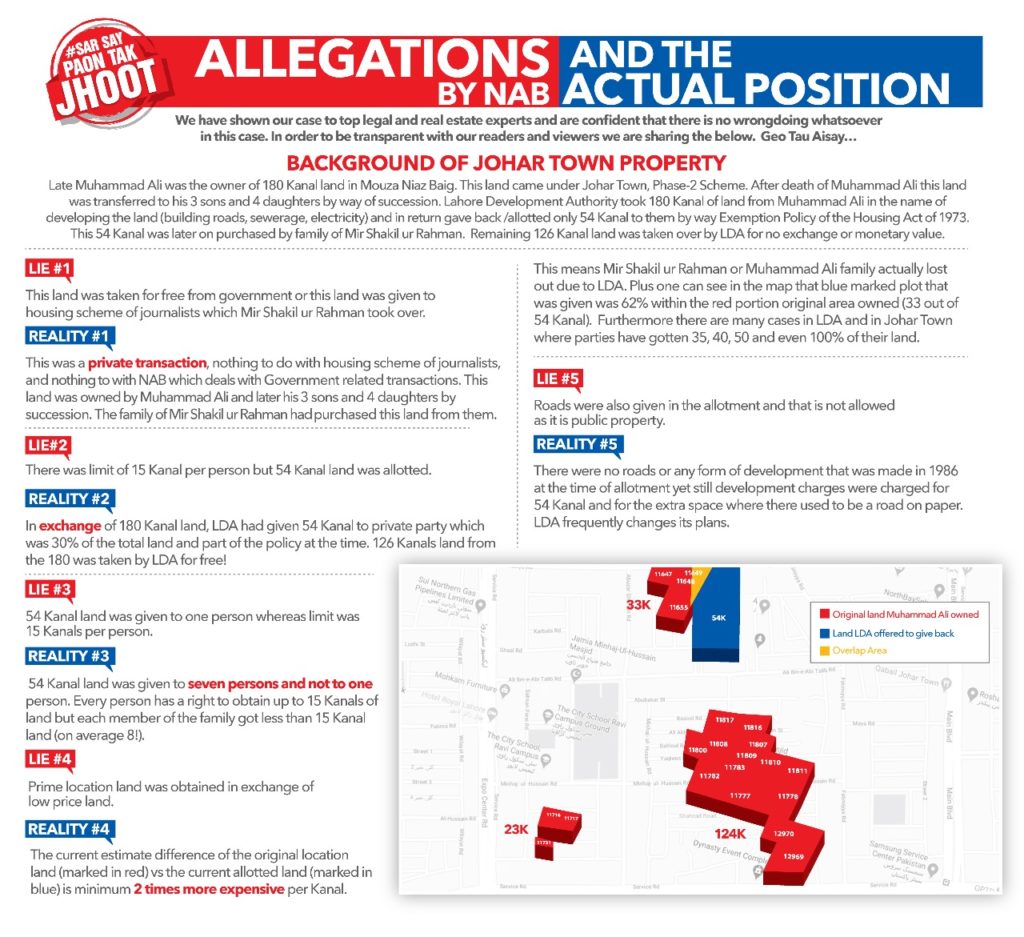
NAB has the power to detain a person without trial for 90 days. Rahman has now been incarcerated for over 50 days, with his physical remand repeatedly extended, circumventing the possibility of making bail since the superior courts do not provide bail during physical remand.
Investigators said they needed Rahman in detention while they conducted the inquiry. He was briefly allowed out in order to attend the funeral of his older brother Mir Javedur Rahman in Karachi.
On April 28, the trial court finally granted Rahman a 14-day judicial remand, enabling him to be moved from the NAB camp jail to prison and apply for bail. The procedure, a mini trial in itself, entails having to prove his innocence.
This open violation of the universally accepted principle of ‘innocent until proven guilty’ has earned Pakistan’s draconian NAB laws much criticism.
Just over a year ago the Supreme Court took notice of the apparent suicide of former intelligence officer and analyst Brig. (retd.) Asad Munir, found dead at his house in Islamabad, 15 March 2019. An unsigned suicide note cited harassment by NAB that had made his life “miserable” for the past two years.
Munir, himself a former deputy director general of NAB’s Special Investigation Wing, Rawalpindi, said that the officials investigating his case were, with one exception, “incompetent, rude, arrogant, untrained”, knew little about the workings of CDA (the Capital Development Authority that he was accused of illegal dealings in), and had decided on his guilt without even listening to him.
This has already been Rahman’s experience also, according to family members who witnessed how aggressively he was questioned, then hastily thrown into the NAB lockup without being given a chance to respond to questions case dating back to 1986.
"We are glad this sham physical remand is over and he is now in judicial remand", said a group spokesman. "We will robustly and rigorously contest these baseless charges and MSR and we welcome the opportunity to clear his name".
Rahman has yet to face a trial or be convicted. “Not only has the trial not even begun, but no charges have even been framed against him”, notes a statement endorsed by internationally renowned intellectuals including Noam Chomsky, Amartya Sen, Ayesha Jalal, and Rajmohan Gandhi.
Legal experts across the board in Pakistan and abroad agree that there is no justification for Rahman’s continued detention.
Rahman has been imprisoned since “the politically-motivated and arbitrary arrest… in unsafe and unhygienic conditions and without meaningful and regular access to his lawyers” says the London-based firm, Doughty Street Chambers, famous for its work on international human rights issues led by renowned barristers including Amal Clooney.
The Chambers on March 24 lodged an urgent appeal for Rahman’s release with the UN Working Group on Arbitrary Detention, and with the UN Special Rapporteur on the Promotion and Protection of the Right to Freedom of Opinion and Expression.
In Lahore, the writer and poet Azhar Munir has been sitting before Lahore Press Club on hunger strike since March 29. “This case by NAB against Mir Shakilur Rahman isn't a case at all,” says Munir, not even employed by Jang/Geo, and known for his principled stand on issues.
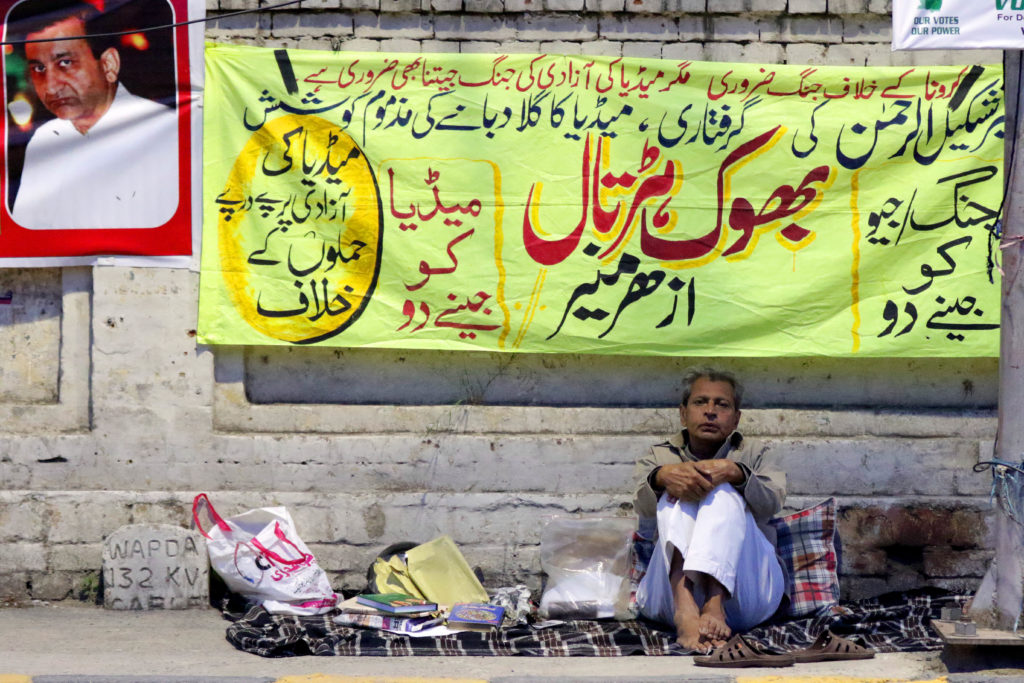
“He wasn't trying to leave the country. This is an act of revenge because his channel, like others, is telling the truth. There has never been as much media censorship as now, not even in Zia or Musharraf years”.
**
The authorities are dragging out the case apparently to teach the media a lesson – “the Putin approach” as a lawyer in London put it.
Rahman’s arrest and detention follows a string of attacks on him and on his media group and its journalists by government as well as non-state actors amid “a deteriorating climate for media freedom in Pakistan” as Doughty Street Chambers has termed it.
In its defence, NAB contends that as a constitutionally protected institution it can’t be criticised.
The statement endorsed by Chomsky and others also notes that Rahman has been held practically in solitary confinement. “Under international law if a prisoner spends more than 22 hours alone in prison without meaningful human interaction it is considered solitary confinement, the psychological and health damage of which can be permanent”.
“There is no reason to not release Rahman from the National Accountability Bureau jail, particularly at a time when the global coronavirus pandemic is leading governments to set free non-violent prisoners with no criminal record, particularly if they are elderly and have health issues as Rahman does”.
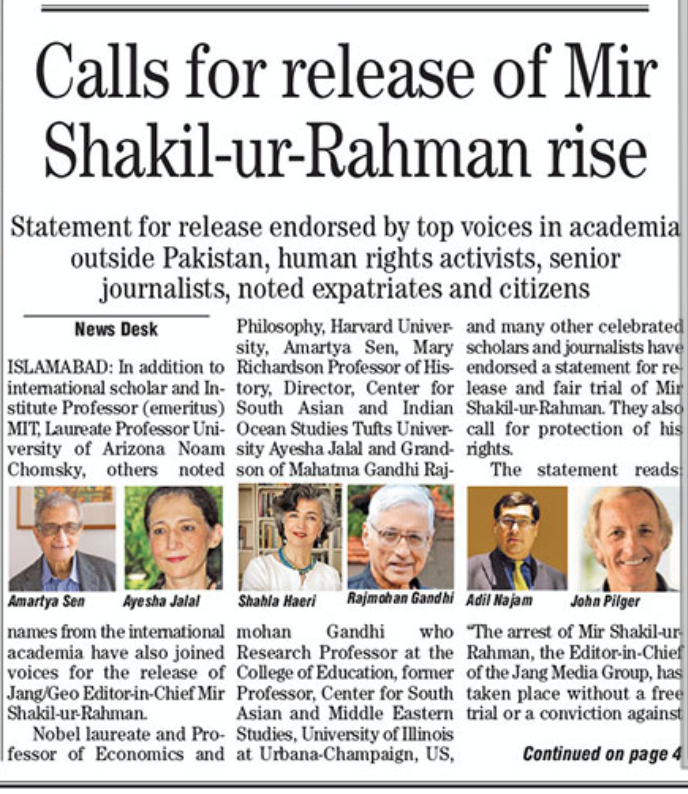
The Committee to Protect Journalists on March 30 launched a campaign to get jailed journalists released during the Covid-19 pandemic. This is part of its #FreeThePress campaign supported by 73 other media and rights groups who have jointly sent an open letter to seven Asian heads of state, including India and Pakistan, urging them to release jailed journalists “at this time of grave public health concern”.
The statement signed by Chomsky and others, urging Rahman’s release asks Pakistan to “Let the case continue against him if there is merit. Let him be arrested if he is found guilty after a trial. This what fundamental rights are about. This is what an elected government that claims to be democratic should ensure”.
Only when that is allowed to happen will Pakistan be able to clear itself of the allegation of being one of the world’s most dangerous countries for journalists.
Special Report
The days of military dictator Gen. Ziaul Haq may be long gone, when journalists in Pakistan were even flogged, including Nasir Zaidi, current secretary general of the Pakistan Federal Union of Journalists. But threats continue to come at the free news media from all sides.
Journalists in Pakistan are still threatened, arrested and target killed. As many as 33 journalists were killed in just six years, 2013-2019. Many were forced out of the country for fear of their lives. Some, like Sajid Hussain, chief editor of the Baluchistan Times, died anyway. He had taken asylum in Sweden in 2012 but went missing a couple of months ago. On May 1, he was found dead.
But targeting individual journalists is messy and less effective than targeting media owners and through them, the media platforms they control. This is “much more efficient and manageable”, comments Supreme Court advocate Babar Sattar.
This tactic is exemplified by the now nearly-two-month long incarceration of Mir Shakilur Rahman, who heads the country’s largest and arguably most influential media group, Jang/Geo.

“The use of criminal law is another tool of deterrence and control’, says Sattar, terming Rahman’s continued detention “a case of egregious abuse of a penal law to deter independent minded media. With MSR's arrest and detention a clear message has been sent that the establishment's approach to exhibition of independence will be no-holds-barred. Nothing is off the table”.
An earlier prominent case involved The Frontier Post owner/editor-in-chief Rehmat Shah Afridi, picked up in 1999 and convicted on charges of drug smuggling that many believed were fabricated. He was released on parole in 2008, a shadow of his former self after nine years in prison, several of them on death row.
In today’s digitally connected world, literally every international human rights and media watchdog has taken notice of Rahman’s detention. More appeals for Rahman’s release have come in than for Z.A. Bhutto’s, contends senior journalist Afaq Farooqui, the New York-based editor of the now defunct Pakistan Post.
https://www.youtube.com/watch?v=EMSdbYIQ5vE&feature=youtu.be
Many rights groups have written to the government of Pakistan, and even directly to Prime Minister Imran Khan himself, “all but holding him personally responsible and asking adherence to the treaties to which Pakistan is signatory”, says a source.
Rahman’s case even makes it to this month’s 10 'Most Urgent' Cases of Threats to Press Freedom, a list maintained monthly by the One Free Press Coalition, a collective of nearly 40 news organisations.
The Jang/Geo media group has been “inundated with calls” from foreign missions expressing concern and asking how they can help. “But we don’t want to badmouth our own government and give details of how the law is being flouted and the Geo/Jang Group being targeted”, says an insider. “In these difficult times when Pakistan faces FATF sanctions, not to mention the coronavirus pandemic, we do not need this”.

***
A case study of the persecution of Rahman and his Jang/Geo media group provides interesting insights into how independent media in Pakistan are being squeezed.
Rahman, imprisoned for over 50 days, is accused of illegal dealings in a decades-old private property case, a commercial transaction between private individuals. Since the state is not involved and no legitimately aggrieved party has lodged a complaint, the question arises about why NAB has involved itself.
“The complainant has no legal locus standi in the matter. He is neither aggrieved not in any way involved. Even more suspicious is the fact that he is an employee of Bol, a rival channel and one accused of committing international crimes, which Geo and Jang Group helped expose”, says a Geo spokesperson.
Secondly, why is the accountability office not following its own due procedures? Just days before Rahman’s arrest the Islamabad High Court had severely reprimanded NAB on its inclination to arrest people without evidence, based on ‘roving enquiries’. The court said that such arrests were a misuse of the NAB chairman’s authority and would not be allowed.
The arrest wasn’t entirely unexpected. Imran Khan while still in opposition had pledged to file cases against Rahman in NAB if he ever came to power.
“In his 2014 dharna IK named MSR 357 times, compared to the ostensible object of his wrath, Nawaz Sharif, who he named 171 times from atop his container near the Geo office in Islamabad”, says a Geo insider.
Charged participants dispersing from the dharna attacked the Geo office on 24 occasions. Over 40 Geo journalists covering PTI rallies were also attacked, not just in Pakistan but also abroad as Geo’s UK correspondent Murtaza Ali Shah testified before a London court in 2016. He was one of the witnesses in Mir Shakilur Rahman’s libel case against channel ARY that had launched a propaganda campaign against Rahman and his media group.
Rahman’s move to take the case to a court in England where both broadcasters also run operations was strategically calculated to circumvent “Pakistan’s dysfunctional legal system” as the Guardian termed it in a report at the time.
“The lack of judges, strikes by lawyers and delaying tactics mean a civil case can take 20 years to get resolved in Pakistan,” advocate Salman Raja told the Guardian. “Even if you took it all the way to the supreme court you might get damages of less than 15m Pakistani rupees [£115,000].”
The London court found ARY guilty of making 24 separate defamatory claims against Rahman and ordered the channel to pay damages of £185,000. ARY’s total bill including costs was estimated at nearly £3m but the channel filed bankruptcy.
**
Since assuming power in 2017, Prime Minister Imran Khan has been publicly antagonistic towards the Jang/Geo media group, openly threatening to take action against the channel and brushing aside any attempts to ask his followers to not be aggressive towards it. NAB has also repeatedly threatened the media group.
Even so, the arrest was carried out “in undue and unholy haste” in violation of NAB’s own rules under which arrest cannot be made at this juncture, notes Muhammad Amjad Pervaiz, Advocate Supreme Court.
Rahman had flown to Lahore on 12 March 2020 to present himself to the National Accountability Bureau with evidence about case, hinging around private property acquired in 1986. NAB procedure requires informing the accused of the charges, summoning them to verify the complaint, and providing them a questionnaire. The answers are reviewed; only they are found unsatisfactory does the NAB board approve arrest, after which the NAB chairman signs the warrants of arrest.
Not only was this procedure bypassed, Rahman’s responses were not reviewed, and he was served pre-prepared warrants of arrest soon after being questioned verbally. Given the chronology of events that day, “there is thus no question, therefore, of the Chairman (NAB) having seen any of the materials before he signed the Warrant of Arrest”, argues the writ petition before the Lahore High Court filed by Aitzaz Ahsan seeking Rahman’s release (No. 17809 of 2020, Mir Shakil ur Rahman Vs. The Chairman, NAB, Etc).
The petition notes that NAB told the court that Rahman’s responses were sent to the NAB Chairman for review via fax. When asked to produce the fax, they said the consultation was conducted via video link. They were also unable to produce the recording of any such video consultation.
Not only was Rahman arrested in an irregular manner, but his personal cell phones were also “illegally confiscated - again surreptitiously. He wasn’t carrying the phones on him. The authorities asked his driver to bring the car into the compound of the NAB building, as if to collect MSR. Once inside, the car was searched and phones taken”, says a Geo insider.
Even arrests made after completing the procedure take place only if the accused is a flight risk, will not cooperate, or is in a position to interfere with investigations. Not only was Rahman fully cooperating, having flown in from Dubai when summoned, but “it is inconceivable that he could in any way influence a case that was 34 years old, where NAB itself was finding it difficult to locate the sellers as well as the then LDA director”, says a Geo spokesperson.
Rahman had purchased the property from the legal owners, seven brothers and sisters, in May 1986, obtaining power of attorney and paying the required taxes and levies. It is this land, parcelled into three non-contiguous plots in Johar Town, under the jurisdiction of the Lahore Development Authority (LDA) that Rahman is accused of illegally acquiring.
His detention on these charges (which have yet to be framed) is the tip of the iceberg in terms of the pressures on his media group.
In the year-and-a-half leading up to his arrest, NAB had sent its reporters, producers and editors, “directly and indirectly, over a dozen notices, threatening shutdown of our channels”, according to a Jang Group spokesperson
**

Besides legal pressures, media in Pakistan face a financial squeeze. The pressure on the Jang/Geo group apparently aimed at forcing the media house to collapse altogether includes denying government-controlled public sector advertisements and withholding past due payments.
“The establishment employed all means to engineer the media's cash flows, by using its control over distribution channels (through cable companies) to curtail distribution and consequently advertising revenues. We saw Jang/Geo circulation dip in 2018 and it came to the verge of bankruptcy”, says Babar Sattar.
According to sources, the current PTI-led government owes the group over PKR 700 million for advertising over the past 18 months. Arrears pending from advertisements placed by the previous PPP and PML-N governments amount to a whopping PKR 6 billion.
Government sources claim that some of the ads were “gifts” from the advertisers. However, aware which way the wind is blowing, advertisers are also looking the other way.
Running Geo alone costs PKR 180 million a month. An insider close to Rahman confides that he has taken out a PKR 2 billion loan to pay salaries. Even so, the group has had to close four publications including the Daily News and Awam, laying off around 800 employees. Pages of existing publications have been reduced, including Jang at five stations and The News Karachi, Lahore and Islamabad.
Plans to launch Jang from Peshawar and Multan have been indefinitely postponed, leading to many journalists and printing staff being laid off. The Jang Multan lay off in mid-February affected 70 workers who joined the ranks of other journalists laid off in Multan, including 80 from Dunya, and another 20 from Daily Express.
Since 2014 when the onslaught on Geo began, cable operators have suspended the channel’s transmission or shuffled it around to obscure numbers making it difficult for viewers to find.
The group’s inability to get help from the justice system is another way of controlling it, contends Babar Sattar. “During CJP Saqib Nisar's time we saw him insist on payment of salaries, while refusing to look at why Geo’s broadcast was shut down”.
The last such occasion was immediately after Rahman’s arrest and press conference by Firdous Ashiq Awan, the then special assistant to the prime minister (SAPM) on information accusing him of various wrongdoings. As before, transmission was restored only on the orders of the superior courts.
**

NAB has the power to detain a person without trial for 90 days. Rahman has now been incarcerated for over 50 days, with his physical remand repeatedly extended, circumventing the possibility of making bail since the superior courts do not provide bail during physical remand.
Investigators said they needed Rahman in detention while they conducted the inquiry. He was briefly allowed out in order to attend the funeral of his older brother Mir Javedur Rahman in Karachi.
On April 28, the trial court finally granted Rahman a 14-day judicial remand, enabling him to be moved from the NAB camp jail to prison and apply for bail. The procedure, a mini trial in itself, entails having to prove his innocence.
This open violation of the universally accepted principle of ‘innocent until proven guilty’ has earned Pakistan’s draconian NAB laws much criticism.
Just over a year ago the Supreme Court took notice of the apparent suicide of former intelligence officer and analyst Brig. (retd.) Asad Munir, found dead at his house in Islamabad, 15 March 2019. An unsigned suicide note cited harassment by NAB that had made his life “miserable” for the past two years.
Munir, himself a former deputy director general of NAB’s Special Investigation Wing, Rawalpindi, said that the officials investigating his case were, with one exception, “incompetent, rude, arrogant, untrained”, knew little about the workings of CDA (the Capital Development Authority that he was accused of illegal dealings in), and had decided on his guilt without even listening to him.
This has already been Rahman’s experience also, according to family members who witnessed how aggressively he was questioned, then hastily thrown into the NAB lockup without being given a chance to respond to questions case dating back to 1986.
"We are glad this sham physical remand is over and he is now in judicial remand", said a group spokesman. "We will robustly and rigorously contest these baseless charges and MSR and we welcome the opportunity to clear his name".
Rahman has yet to face a trial or be convicted. “Not only has the trial not even begun, but no charges have even been framed against him”, notes a statement endorsed by internationally renowned intellectuals including Noam Chomsky, Amartya Sen, Ayesha Jalal, and Rajmohan Gandhi.
Legal experts across the board in Pakistan and abroad agree that there is no justification for Rahman’s continued detention.
Rahman has been imprisoned since “the politically-motivated and arbitrary arrest… in unsafe and unhygienic conditions and without meaningful and regular access to his lawyers” says the London-based firm, Doughty Street Chambers, famous for its work on international human rights issues led by renowned barristers including Amal Clooney.
The Chambers on March 24 lodged an urgent appeal for Rahman’s release with the UN Working Group on Arbitrary Detention, and with the UN Special Rapporteur on the Promotion and Protection of the Right to Freedom of Opinion and Expression.
In Lahore, the writer and poet Azhar Munir has been sitting before Lahore Press Club on hunger strike since March 29. “This case by NAB against Mir Shakilur Rahman isn't a case at all,” says Munir, not even employed by Jang/Geo, and known for his principled stand on issues.

“He wasn't trying to leave the country. This is an act of revenge because his channel, like others, is telling the truth. There has never been as much media censorship as now, not even in Zia or Musharraf years”.
**
The authorities are dragging out the case apparently to teach the media a lesson – “the Putin approach” as a lawyer in London put it.
Rahman’s arrest and detention follows a string of attacks on him and on his media group and its journalists by government as well as non-state actors amid “a deteriorating climate for media freedom in Pakistan” as Doughty Street Chambers has termed it.
In its defence, NAB contends that as a constitutionally protected institution it can’t be criticised.
The statement endorsed by Chomsky and others also notes that Rahman has been held practically in solitary confinement. “Under international law if a prisoner spends more than 22 hours alone in prison without meaningful human interaction it is considered solitary confinement, the psychological and health damage of which can be permanent”.
“There is no reason to not release Rahman from the National Accountability Bureau jail, particularly at a time when the global coronavirus pandemic is leading governments to set free non-violent prisoners with no criminal record, particularly if they are elderly and have health issues as Rahman does”.

The Committee to Protect Journalists on March 30 launched a campaign to get jailed journalists released during the Covid-19 pandemic. This is part of its #FreeThePress campaign supported by 73 other media and rights groups who have jointly sent an open letter to seven Asian heads of state, including India and Pakistan, urging them to release jailed journalists “at this time of grave public health concern”.
The statement signed by Chomsky and others, urging Rahman’s release asks Pakistan to “Let the case continue against him if there is merit. Let him be arrested if he is found guilty after a trial. This what fundamental rights are about. This is what an elected government that claims to be democratic should ensure”.
Only when that is allowed to happen will Pakistan be able to clear itself of the allegation of being one of the world’s most dangerous countries for journalists.
